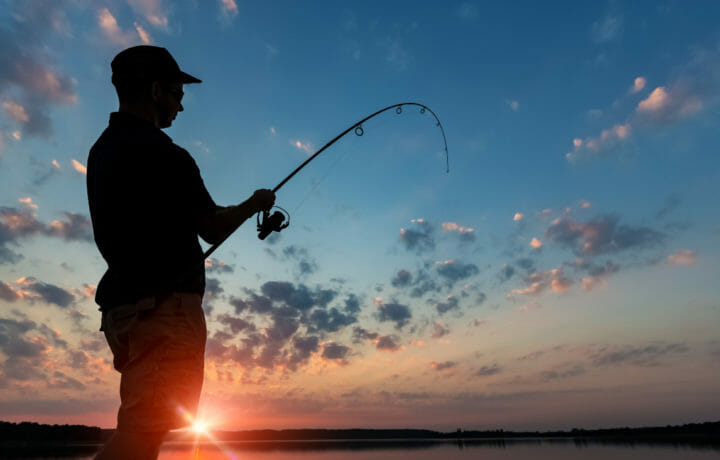Fishing is the first thing my father taught me and the lessons from that activity have served me well in many career fields. The intelligence community and the angling community are not that far apart. Both look to score a catch in a place they have heard others get results, as well as, in some new hidden spots. Some days patience pays off, and some days you come home with only stories of the one that got away.
5 Questions to Ask When You Work in the Intelligence Community
Ask the right questions, and you learn the right lesson for the day.
1. What do you want to catch?
No easier way to waste a day than to spend it fishing with a random bait for fish you aren’t sure exist in the water around you. For the Intel community, this is the equivalent of trying to collect information, analyze raw intel, or distribute intel products when you don’t know what policymakers, planners, or leaders are looking for. Start each day or week by looking at the policy or planning decisions facing leaders. Many of them are in the national security section of major newspapers, or here at ClearanceJobs news. You will never waste your time before you cast your line by talking to others who have fished there or by talking to the local fishing store staff. Likewise, Intel folks should spend 25% of their time talking to the people who read their final intel products. If you don’t know what they need, your arm will get tired from casting blindly for the big one.
2. Where should you fish?
Once you know what you need to collect and analyze, you have to find trusted sources of information. Again tips from friends/colleagues are useful at this phase. But never be afraid to vet your colleagues from time to time to ensure they aren’t sending you to a dry hole, or sending you after the wrong fish. As so much more information today is also available in open sources, be sure to check occasionally to ensure someone isn’t feeding misinformation into the systems you rely on.
3. What do you keep and what do you throw back?
Sometimes you seem to find a person that gives out information a bit too freely, they might even be sending you away from their favorite fishing destination. It’s always good to verify even your most regular contacts. I remember clearly the excitement on an allied intelligence officer’s face, who after months of work thought he had made contact with the biggest fish in our sights. In his glee, word got out before he finished the verification process, of who he thought he was in touch with. This left him with egg on his face when the “senior bad guy” was just a canary in the coal mine test impersonator. The bad guys wanted to check the system before they let us reach out to their key leader. Always check the length and weight of the fish and ensure it meets the current catch and keep rules.
4. When is a good time to change baits?
Whether you are collecting, analyzing, or publishing/presenting information, there will be moments when you realize your technique is not working. Checking with your customers to ensure they are getting what they need is a useful part of your self assessment. If analysts don’t use your information or reports, or policymakers don’t read or understand your products, then you have a problem, not them. Always verify that what you create is useful to the larger team, how you feel about your work is irrelevant if no one needs your efforts. Adjust your technique until you start catching fish again and keep checking the bait regularly to make sure you still have something on the hook.
5. How do you clean and cook what you catch?
The best part of fishing, for most, is the time outdoors on or near the water. It’s calming and exciting in equal parts. The next best part is eating fresh fish. The least fun part is cleaning the fish and cooking it. But this is the key to getting better. Get into the guts of your work and talk to your colleagues and bosses about how to best do your job smoother and faster. Ensure you have the best tools for cleaning and you have the latest recipes for cooking. If you can’t write a fast and useful report from the field, or write up an analysis product on short notice, you must get better. Talk to the best writer you know. Read their reports. Read the products that are made from the best collection folks insights. Building a supportive relationship between policymakers, analysts, and collectors is the best way to get a weekly fish fry ready that can feed the team.




